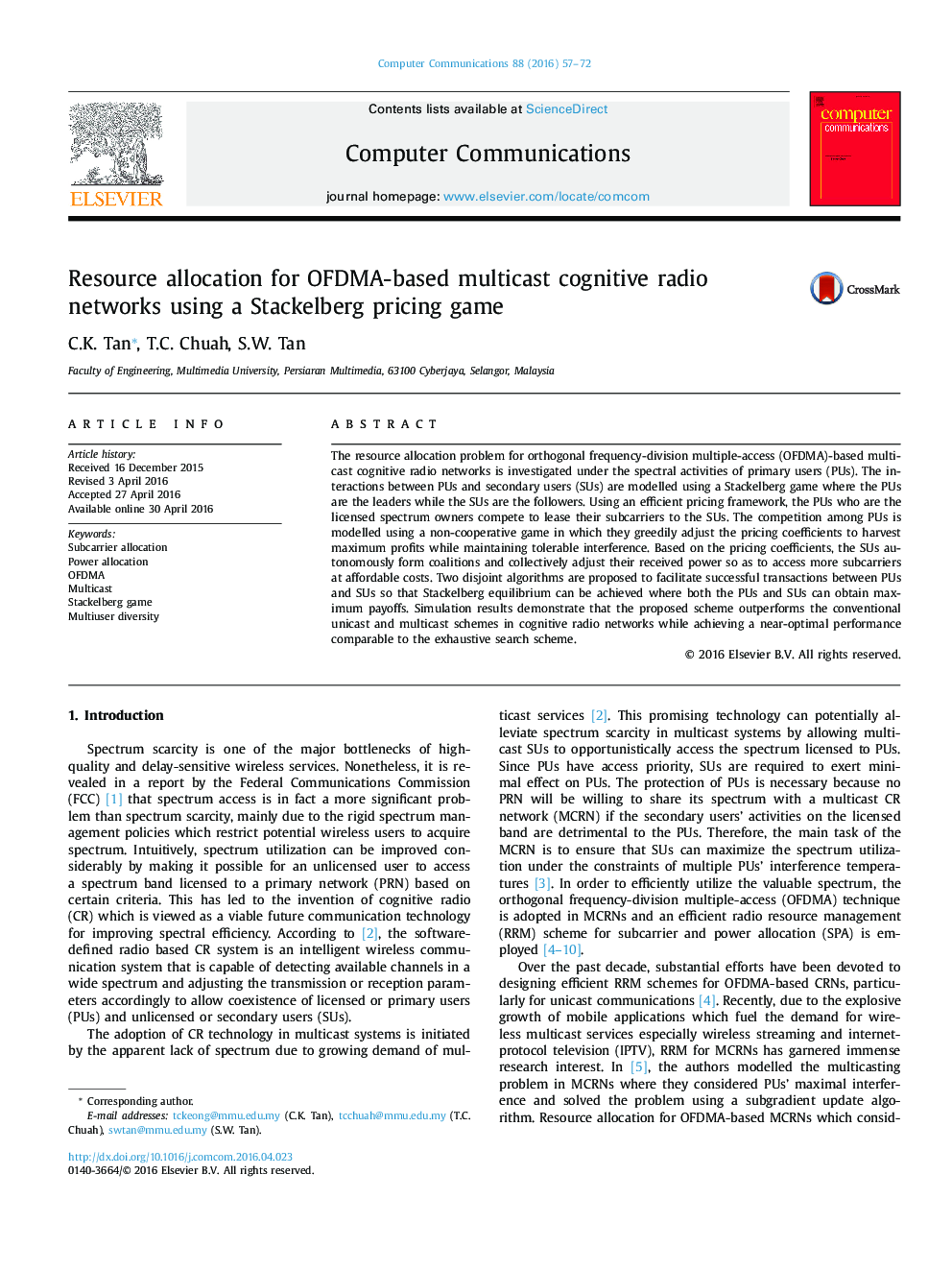| Article ID | Journal | Published Year | Pages | File Type |
|---|---|---|---|---|
| 449888 | Computer Communications | 2016 | 16 Pages |
The resource allocation problem for orthogonal frequency-division multiple-access (OFDMA)-based multicast cognitive radio networks is investigated under the spectral activities of primary users (PUs). The interactions between PUs and secondary users (SUs) are modelled using a Stackelberg game where the PUs are the leaders while the SUs are the followers. Using an efficient pricing framework, the PUs who are the licensed spectrum owners compete to lease their subcarriers to the SUs. The competition among PUs is modelled using a non-cooperative game in which they greedily adjust the pricing coefficients to harvest maximum profits while maintaining tolerable interference. Based on the pricing coefficients, the SUs autonomously form coalitions and collectively adjust their received power so as to access more subcarriers at affordable costs. Two disjoint algorithms are proposed to facilitate successful transactions between PUs and SUs so that Stackelberg equilibrium can be achieved where both the PUs and SUs can obtain maximum payoffs. Simulation results demonstrate that the proposed scheme outperforms the conventional unicast and multicast schemes in cognitive radio networks while achieving a near-optimal performance comparable to the exhaustive search scheme.
